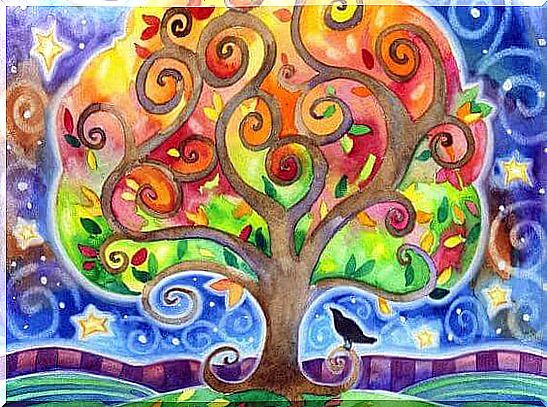In The Darkness There Are Always ‘enlightened People’ Who Guide Us

In times of darkness there are always ‘enlightened people’ guiding us. They are like the light of the sun shining through a window to inspire us. They give us hope in those moments when we lose direction, courage and lose track. These people are medicine to the heart in moments of adversity.
We have to admit it: we all need someone who cares about us. We can love our independence and our proud self-reliance and even think we carry the sun within. However, when it storms from outside, sooner or later we suffer from sadness, fear and insomnia. It also creates insecurity that can only be alleviated through emotional support, empathy, and affection.
Well, there is a curious fact. Social psychology tells us that giving emotional support is an art that not everyone knows how to offer well. Strange as it may seem, those who love us most can sometimes give us so much attention that we feel a certain sense of dependence, ignorance, and weakness.
The most effective kind of support is that which is always there but in a subtle, enveloping and authentic way. We also talk about this kind of help when neither of the two parties feels they owe the other. Since there are no “givers” and “receivers” of affection, there is a bond of fluid, subtle, and fantastic reciprocity.
We propose you to think about this interesting topic. At the same time, there are several nuances.

People who erode and ‘enlightened people’
We all know what empathy is and how it impacts our day-to-day relationships. Sometimes we are dealing with someone who cannot connect with others. It can also be someone with certain aggressive, hostile and almost destructive qualities. You have probably said more than once about such a person, “ That person has no empathy.”
Simon Baron-Cohen teaches at Cambridge and is an expert in the development of psychopathology. He defines those psychological traits under a term worth remembering: “eroding empathy.” According to him, this behavior arises when a person not only cannot connect with his fellow man, but also steadily erodes, undermines and breaks up his immediate neighbor. These are people who indeed possess a certain darkness.
In the opposite case there are of course also ‘enlightened people’. Instead of seeing them as persons of great generosity and goodness, we can describe them as men and women who know when to be there. They facilitate inner harmony and are like emotional weavers who make our broken pieces whole. They remind us once again how beautiful and important we can be.

Psychological Traits of ‘Enlightened People’
We already indicated at the beginning that giving support is in reality a kind of art that not everyone knows how to practice. For example, what is worth remembering is that certain inconveniences can arise when there is a clear difference between a giver and a receiver . The recipient may feel guilty and become dependent on the giver who enjoys his role as a caregiver.
- Enlightened people never assume a caregiver role: they facilitate.
- They know how to be there without dominating or judging. Moreover, they never give that constant attention that eventually makes the other person develop some kind of dependence. They are experts at generating authentic personal growth.
- They respect one’s comfort zone and are there when needed. They also protect the privacy of the other person when they need it.
- They are present, but always subtle. They do so with the exceptional ability to remind us of who we are. They care about us, bring positivity, encouragement and hope.
How do you learn to give light and provide authentic emotional support?
‘Enlightened people’ guide us in times of trouble. They accompany us in moments of well-being and they inspire us in everyday life. That’s something we all know. Well… would we be able to give them support of the same quality and authenticity?
Believe it or not, offering emotional support isn’t easy. It requires a very deep self-knowledge and a good control of your own emotions. You should also not put yourself first, but discover the other person and empathize with that person with all the insights.

Tips to develop genuine support
Some people can empathize emotionally with the other, but never develop cognitive empathy. That’s why it’s not just about ‘feeling’ what the other is experiencing, you also have to understand it.
- It is also necessary to develop an empathic precision. We are talking about that ability to correctly infer the other person’s mental state. To do this , you have to be able to ask the right questions, not judge loudly, but listen attentively.
- Avoid raising the other person’s tension with clinchers like “that’s nothing” or “it could have been worse”.
- We also need to remember that when someone is in bad shape, typical well-intentioned expressions like “ I’m here when you need me” or “ You can count on me” aren’t worth much either. Real, tangible and visible facts are needed more than words.
‘Enlightened people’ are people of few words, but of great deeds. They will stand beside you before you ask and read in your eyes your trials and sorrows. We can conclude that what we sometimes understand by support, in reality it is not so much. Good support is based not only on saying the right thing, but also on doing the right thing through small acts of kindness out of genuine interest.
Images Courtesy of Claudia Tremblay and Amanda Cass









